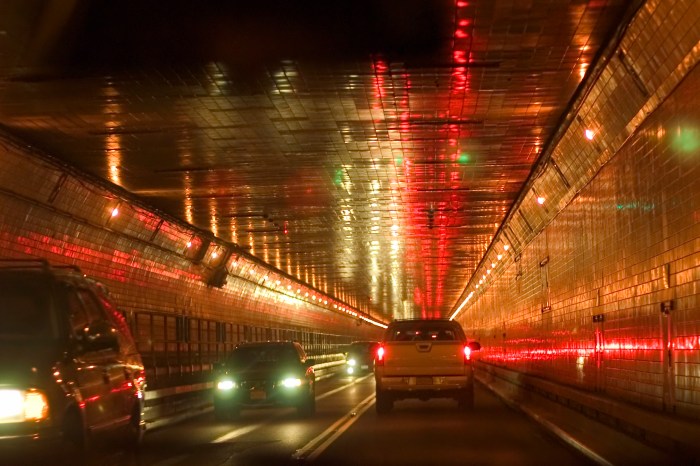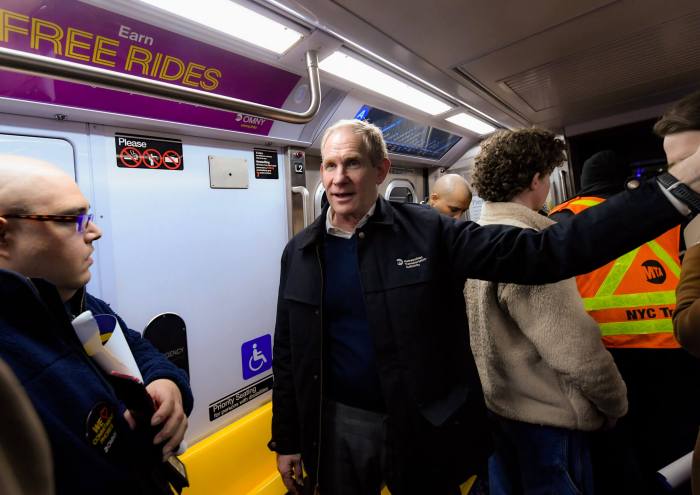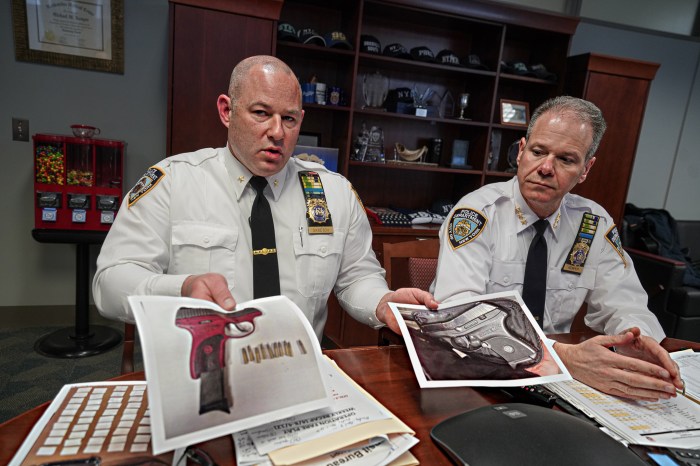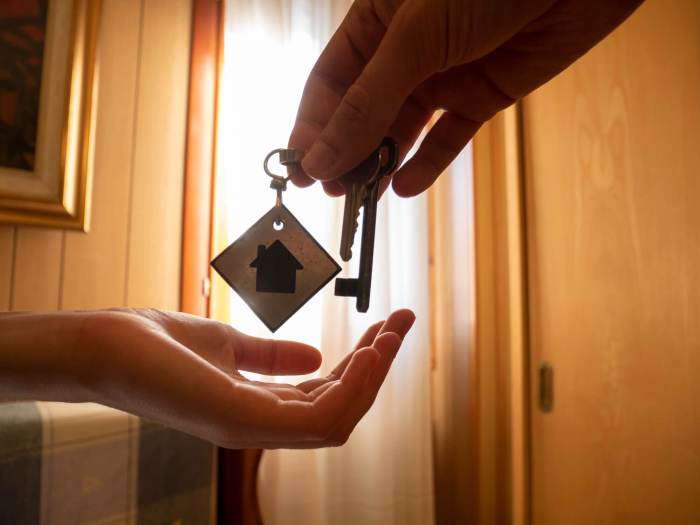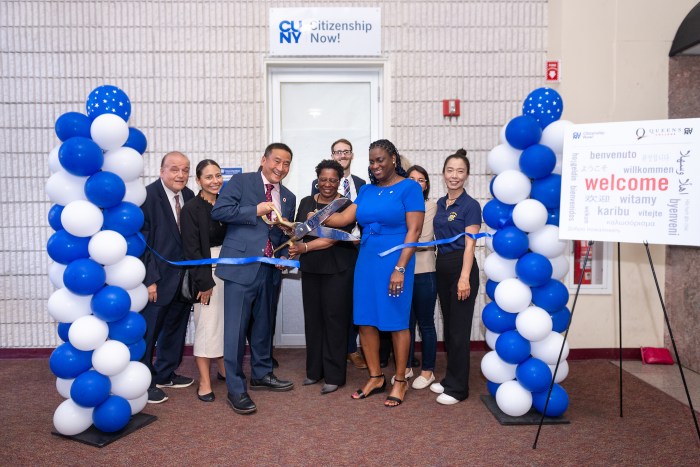In an attempt to combat slowing traffic, the City Council is advancing legislation requiring a study on implementing overnight truck deliveries in parts of Manhattan and Brooklyn.
The council’s Transportation Committee is expected to pass the bill on Monday, moving the legislation forward to a full vote among council members on Wednesday. If it becomes law, the city’s Department of Transportation would have to study congestion caused by truck deliveries in Manhattan below 59th Street and in Downtown Brooklyn and present an analysis on shifting those deliveries to between 7 p.m. and 7 a.m.
“We have a crisis right now with ever-mounting congestion in the Manhattan business district and Downtown Brooklyn and it’s hurting our environment; it’s a safety threat for pedestrians and bicyclists,” said Manhattan Councilman Mark Levine, the sponsor of the bill. “And to think that in the midst of that mounting congestion crisis we’re delivering to stores during peak hours in most cases — clearly there must be a better way.”
New York City relies on trucks to bring in more than 90 percent of its goods, according to the city’s DOT, but that presents challenges the city has struggled to address. Travel speeds in Manhattan south of 60th Street have dropped 20 percent between 2010 and 2014, according to a recent city study.
On a small scale, the city has already explored off-hour truck delivery. In 2013, it undertook a federally-funded pilot to incentivize 400 businesses to switch to off-peak deliveries. Characterizing that project as “successful,” Trottenberg said the agency would be launching a new “off-hour delivery program” with the goal of getting 900 more businesses on board.
“As our street grid lacks alleys, many deliveries happen at the curb and often during busy times,” said DOT Commissioner Polly Trottenberg at a hearing on the bill this June. “Truck deliveries are essential to our economy but … they contribute to double parking, noise and air pollution, as well as congestion.”
There are other contributors Trottenberg has acknowledged: the growth of e-hail apps like Uber and Lyft; parking placard misuse and antiquated parking rules. While Trottenberg has outlined some efforts to address those issues, the administration has not yet released the kind of detailed “congestion plan” de Blasio had promised during his State of the City speech this year.
Both Levine and Councilman Ydanis Rodriguez, the chair of the Transportation Committee, also reiterated their support for congestion pricing. Some experts believe the tolling strategy could have a far-reaching impact on city traffic, though de Blasio has dismissed the idea as a “regressive tax” on outer-borough car owners.
“I believe everything should be on the table to deal with congestion — including congestion pricing,” Rodriguez said. “This bill, for me, is one more venue.
“Climate change is real,” Rodriguez continued. “Even if it’s a small contribution in reducing the level of pollution from trucks in the street, this is a way we are taking a step in becoming more responsible in protecting our planet.”











